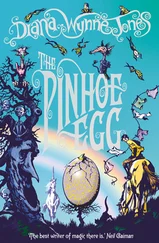‘And you kept paying?’
‘My father did. Through my account. When he died, I kept paying. I’d promised him that.’
‘Did he know about the boy?’
‘What she did to him?’
Unable to say the word, Brunetti nodded.
‘No one ever had the courage. He had moved to the Giudecca by then.’ She paused and gazed into the middle distance. ‘He might have killed her if he had known. Davide was his only son, you know.’
She met his gaze. ‘If you do the research, you’ll find out that’s what happens. If you don’t talk to them, that is. They’re like animals. Like Davide.’
Then she rose to her feet, saying, ‘I think that’s enough, don’t you?’
He did. He left.
28
Brunetti let himself out, being especially careful to close the door to the apartment very quietly, descend the steps with the silence of a wraith, cross the courtyard and emerge into the calle with thief-like care. It was still raining, but he did not notice until he was back at the Accademia, when he bought another umbrella from another Tamil.
Since his shoes were soaked through, he decided to walk. Plod, more like, but he thought of it as walking. Not talked to, not spoken to, no language, no contact, no words, no communication, no meaning, no sense to anything, no words to think in, no names for things. Nothing more terrible. No way to sort it all out; no way to distinguish between the sound of a dog and the words of a lullaby; ‘yes’ sounding the same as ‘no’, and both words the same as ‘upside down’.
He stopped at the door to their building. His pocket was sodden, the keys colder than he had ever known them to be. Tonight there were three hundred steps to the apartment. He closed the umbrella and dropped it outside the door, let himself in, kicked off his shoes, and bent to put them out on the landing. There were sounds from the kitchen: words, phrases: ‘he’s such a good . . .’ ‘she never says what . . .’, ‘five more minutes’. They all meant something, those snatches. Those words created the possibility for larger categories or for larger, more encompassing ideas. Praise, criticism, time.
He went into the bathroom and shed his clothing, socks first, draping them all, sodden and dark, on the edge of the bathtub. He wanted to take a shower, but resisted the desire and merely wiped at his hair with a towel, draping that next to his shirt. He put on his terrycloth robe and went down the hall to their room. He found an old pair of woollen slacks he had refused for years to allow Paola to throw away. He took comfort from their familiar, shapeless softness. He pulled on a T-shirt and an old green cashmere sweater he had saved time and time again from her discarding impulses. He pulled on socks and slipped his feet into leather slippers.
He went down the corridor and into the kitchen. At his entrance, Chiara said, ‘Your hair’s a mess, Papà . Come over here and let me fix it for you.’ She hopped to her feet and Brunetti sat in her chair, amazed at the way ‘fix’ was just right for this sentence, even though hair couldn’t be fixed, probably because it couldn’t be broken, but when hair was a mess, it could be set right again by being fixed, just as though it were broken, and wasn’t that an amazingly flexible thing to do with words?
Chiara spread her fingers and ran them through his still-wet hair, brushing at it repeatedly until she had it looking more or less the way it was supposed to look. When he didn’t say anything, she snaked her way around his shoulders and pulled her face close to his. ‘What’s the matter, cat got your tongue?’ she asked in English.
How remarkable that it happened in different languages, too, and that phrases could have two meanings. Obviously, there was no cat biting his tongue, but it was a wonderful metaphor for a motionless tongue. Like Davide’s.
‘Just thinking,’ he said and smiled round at them all.
‘What about?’ Paola asked. Raffi was interested, but he was more interested in his risotto.
‘About a joke my mother told me when I was a kid. I wouldn’t eat carrots one night, and she told me that carrots were good for my eyes.’
Chiara slapped her hands over her ears, knowing what was coming. Paola sighed; Raffi ate.
‘When I asked her how she knew that, she asked me if . . .’ and he paused to give them time to join in the chorus, as they did every time he told this story . . . ‘I’d ever seen a rabbit wearing glasses.’ Sure enough, they all joined in with his mother’s question, her mother-in-law’s question, their grandmother’s question, and Brunetti was left marvelling that his mother could have all those different names.
He ate the rest of the dinner, though he didn’t know what it was he was eating. He drank a glass of wine, left the second one unfinished, drunk with the words that crossed the table, their different meanings, the fact that they indicated time: future and past; that they indicated whether something had been done or was still to do; that they expressed people’s feelings: anger was not a blow, regret was not tears. At one point, Paola expressed a wish and used the subjunctive, and Brunetti felt himself close to tears at the beauty of the intellectual complexity of it: she could speak about what was not, could invent an alternative reality.
He began to return to the real world with dessert, helped in the descent by a cake topped with red plums. As Paola cut a second slice and put it on his plate, he asked her, ‘Do you think God is language?’
Raffi was having none of this. He held up a forkful of cake. ‘God is plum cake,’ he said and took communion.
Later, he sprawled on the sofa in Paola’s study and told her all about it, every detail, starting with his first conversation with Ana Cavanella and finishing with his quiet exit from the Lembo palazzo.
Paola sat in stunned silence for a long time and then did what she could to fight her way back to human understanding: she talked about what she had read. ‘There’s Kaspar Hauser, and there’s that girl in the United States. I’ve read about them, and I’ve read a bit of the theory.’
She looked his way, and he nodded. ‘They’re pretty much agreed – the people who write about this – that if you don’t learn language by about twelve, then the wiring is formed in your brain without language and you’ve missed the chance, and you’ll never get it, never understand how it works.’
‘Talking?’ he asked.
‘Language. The concept of it. That a noise can equal a thing, or an action.’
‘Or an idea,’ Brunetti added. ‘Or a colour.’
‘She would have been less a monster if she had poked out his eyes,’ Paola said with sudden ferocity. ‘He would still have been human.’
‘Don’t you think he was?’
‘Of course he was,’ she said. ‘But he wasn’t like us.’
‘Is that rhetorical exaggeration?’
‘I suppose so,’ she admitted. ‘But he really wasn’t. He’d never understand what we do. Or what anything meant.’
‘You think he understood other things?’ Brunetti asked, not knowing fully what he meant by that, but thinking of those drawings.
‘Of course.’ She ran her hands across her face and through her hair. ‘It’s so hard to talk about this without sounding like the worst sort of eugenic monster, placing different values on different people.’
‘Or defining what people are by what they can do?’ Brunetti suggested.
‘Can we go to bed now?’ she asked like a petulant child.
‘I think we’d better. We can’t answer any of these questions.’
‘Neither of us was asking questions,’ she said.
For a moment, Brunetti thought he’d contest that, but he was too tired for it. Instead, he said, ‘Besides, there aren’t any answers.’
Читать дальше












